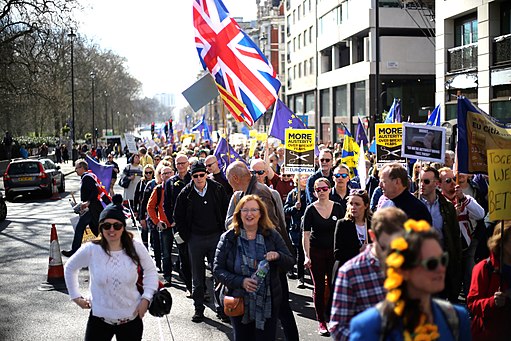 Image credit: Jeff Djevdet
Image credit: Jeff Djevdet
“We need a new gender contract for the UK.” Thus surmised Professor Yvonne Galligan Queens University Belfast at the end of the WIDEN symposium that took place in the University of Bristol in May 2018. With the 4 UK nations represented, the 3 sponsoring universities of Bristol, West of England and Bath, and 16 speakers from women’s and anti-discrimination organisations, universities, and trade unions, this was a day of knowledge sharing from practitioner, activist and interdisciplinary research perspectives.
The purpose – to widen understanding of the impact of Brexit on women’s equality, across intersections of race, class and citizenship and to consider together how we might protect and extend rights and resources for promoting women’s equality across the UK.
The symposium widened the debate from the non-gendered discourse on the single market and freedom of movement and considered the impact of Brexit on BAME women including hate crime and gender violence. Moestak Hussein Community Coordinator spoke to the increase in micro-aggression in daily life since the referendum. Sado Jirde, Director of Black South West Network commented: “Brexit has normalized racism.”Sado posed pivotal questions: Who really belongs? Are we really what we think we are?
Professor Marianne Hester reminded us of the fact that all UK nationals are EU citizens. “All of us lose our citizenship rights – this is not talked about”. Non UK EU citizens are being told they have to get out of the country, part of the “hostile environment” strategy. Over 3 million non UK EU citizens living in the UK have now become “other”, having to go through a process of getting permanent residence whether they have been here up to 30 years or more. Gwendoline Sterk of Welsh Women’s Aid underlined, women with experience of violence are being told they have no right to public funds, fewer rights to stay on benefits and that landlords are refusing those who don’t have permanent residence papers.
There was a general sense of outrage at the sheer enormity of the losses to women threatened by EU withdrawal. Joanna Kaye (Regional secretary, Unison) detailed how EU membership has provided the legal framework and mechanisms for trade union enforcement of major advances in equality for women: parental leave; pensions for part time workers, work life balance; equal pay for equal value; contracting out of services on same terms and conditions in public services; pregnant workers directive. “The EU provided the leadership on gender equality. My eternal regret is that the UK has looked to the past rather than the future….We want our workers having the exact same rights as those across Europe.”
 London Pro-EU protest March 2017
London Pro-EU protest March 2017
Sue Milner (University of Bath) stated that Brexit negotiations showed up our misplaced faith in the political process, and in the UK as a pace-setter. “Essentially there are no new proposals on the table.” Brexit is negative and disempowering. What is the constitutional settlement? What will the Bill of Rights look like? The impact of tariffs will kill many of our businesses. We need to establish mechanisms against World Trade deals that reduce our rights.
Speakers from Scotland and Wales spoke of how EU funding has been pivotal to women’s advancement; research that has informed gender mainstreaming policy, funding programmes for women’s organisations, ESF structural funds building inclusion. Natasha Davies, Chwarae Teg argued Wales had a stronger legal framework for equalities than Scotland but no power to protect women’s rights if the UK government rolls them back. EU funding in Wales is 6 times higher than in England. Loss of EU funding is a massive concern, for women’s employment, income health and well-being. There is silence about what will replace the structural funds at Westminster.
Mary Ann Stephenson (Director, Women’s Budget Group) spoke on the gendered impact on trade deals. All the projections are that GDP will be lower by 2030, with savings from leaving the EU wiped out by Brexit. Best case scenario for women is staying in the single market and in the customs union. Taking back control? UK will not have national sovereignty – that is what a trade deal is. Professor Hazel Conley (UWE) warned: “The fear is that Brexit will extend austerity and we all know what absolute austerity has been for women’s equality. The Public Sector Equality Duty does not work under austerity as budget cuts are taking over the importance of duty being taken seriously.”
Dr Jule Mulder (Bristol University) contrasted the principled approach of the European Court of Justice to the pragmatic approach of UK Government. “Loss of the European Court of Justice will be a huge potential loss of protection for women workers even if we keep our Equality Law in its present form.” Professor Jackie Jones (UWE) spoke of her experience of being President of the EU Women’s Legal Association, and how this international network with access to key people had been the means to ‘get things done’ in key political settings. Time was short for using such networks before withdrawal: why not use the courts now, to call government to account on compliance with the EU Charter?
Women’s activism was considered the critical way forward. Speakers highlighted democratic channels for getting diverse women’s voices heard. Ginger Wiegard described how the Ethnic Youth Support Team (EYST) is creating a unified platform for race equality across Wales, involving anyone who is not white British but at the same time including non UK EU nationals whatever their ethnicity. Diane Bunyan who drafted the Charter for Equality of Women and Men in Local Life, (agreed by the Council of European Municipalities and Regions which is outside the jurisdiction of the EU), explained how the Charter is used by activists to embed gender equality into local government decision-making on employment, political representation and all aspects of public services. She cited how in 2014 Bristol Women’s Voice persuaded the newly elected Mayor to sign the Charter, thereby getting him to support the setting up of the Bristol Women’s Commission to deliver an agreed action plan.
Jackie Longworth, Chair of Fair Play South West and Dr. Angela O’Hagen (Glasgow Caledonian University) noted the lack of women in the negotiation process. “We need to put women’s voices into the negotiations on EU withdrawal, said Angela. If you are not at the table you’re on the menu.” Look to the Nordic neighbours; make voices heard; re-empower women in civil society organisations. “The big changes in the past have come when women have got together and made a noise, said Jackie. “Women never got anywhere by being polite.”
Professor Yvonne Galligan outlined the complex architecture of rights in Northern Ireland, completely interwoven with EU rights on gender based violence, trafficking, civil society for peace and cohesion and human rights more generally: That the Good Friday Agreement enshrines those rights in UK, Anglo-Irish and international agreements. Women are coming together to demand that the principles enshrined and that include the European Convention on Human Rights, the EU Charter of Fundamental Rights, and the Human Rights Act 1998, be retained in the final Brexit deal. Thus the Good Friday agreement could have leverage across the UK in the withdrawal process. Strikingly, many agreed that the best hope for England was to learn from devolved governance and engagement in Northern Ireland, Scotland and Wales.
Women have to take power in institutions of power. All agreed that the Women’s Commission closed down by the Coalition Government should be reinstated as part of that process. All agreed that decision-making mechanisms had to be widened.
WIDEN was the theme of the day and the acronym for our newly formed network – Women’s Inclusive Democracy in Europe Network. We must widen understanding about the impact on women otherwise those who are disadvantaged the most by reason of ethnicity, class, income and citizenship will be truly left behind by Brexit.
Authors: Sue Cohen; Margaret Page WIDEN
